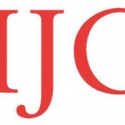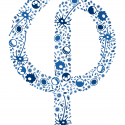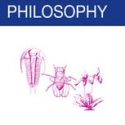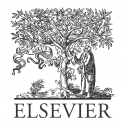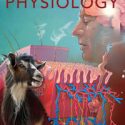For decades cancer research had focused exclusively on the tumor. Later the vision was broadend to the tumor microenvironment (TME). Today five researchers – both philosophers and scientists – call for a look beyond the tumor microenvironment. In the minireview they show the crucial importance of the tumor organismal environment (TOE).
Find the full article here: https://onlinelibrary.wiley.com/doi/full/10.1002/ijc.32343
Custom Tags Archives:
Philosophy of Biology: The challenges of big data biology by Sabina Leonelli
The availability of big data has the potential to transform many areas of the life sciences and usher in new ways of doing research. Sabina Leonelli argues that big data biology also raises fundamental questions in the philosophy of science: for example, what is a good dataset, and how can reliable knowledge be extracted from big data? Collaborations between biologists, data scientists and philosophers of science will help us to answer these and other questions. Read more here.
Philosophy of Biology: Immunology and individuality by Thomas Pradeu
What do philosophers say about immunology, and to what extent can this be useful to immunologists? Immunology and philosophy have a rich history of dialogue. Immunologists have long been influenced by ideas from philosophy, notably the concept of 'self', and many philosophers have explored the conceptual, theoretical and methodological foundations of immunology. This article discusses two aspects of this dialogue: biological individuality and immunogenicity. Read more here.
Philosophy of Biology: Understanding regeneration at different scales by K. MacCord and J. Maienschein
Regeneration occurs at many different levels in nature, from individual organisms (notably earthworms and hydra), through communities of microbes, to ecosystems such as forests. Researchers in the life sciences and the history and philosophy of science are collaborating to explore how the processes of repair and recovery observed at these different scales are related. Read more here.
Philosophy of Biology: Towards a classification of stem cells by L. Laplane and E. Solary
The characteristic properties of stem cells – notably their ability to self-renew and to differentiate – have meant that they have traditionally been viewed as distinct from most other types of cells. However, recent research has blurred the line between stem cells and other cells by showing that the former display a range of behaviors in different tissues and at different stages of development. The authors use the tools of metaphysics to describe a classification scheme for stem cells, and to highlight what their inherent diversity means for cancer treatment. Read more here.
Why science needs philosophy – new article in PNAS
The latest edition of PNAS features an article co-written by philosophers and scientist pleading for a closer collaboration between their respective disciplines. The article entitled "Why science needs philosophy" argues that despite tight historical links between science and philosophy, present-day scientists often perceive philosophy as completely different from, and even antagonistic to, science. However philosophy can have an important and productive impact on science.
The authors give three examples taken from various fields of the contemporary life sciences. Each bears on cutting-edge scientific research, and each has been explicitly acknowledged by practicing researchers as a useful contribution to science. From there the authors develop in what forms philosphy can help advance science. Read the full article here.
CRISPR-Cas immunity: beyond nonself and defence by T. Pradeu and J.-F. Moreau
The journal Biology & Philosophy has published a special issue on the philosophy of CRISPR-Cas. Thomas Pradeu has written the introduction and together with Jean-François Moreau he presents a commentary to Eugene Koonin's target paper.
In the commentary Pradeu and Moreau defend an extended view of CRISPR-Cas immunity by arguing that CRISPR-Cas includes, but cannot be reduced to, defence against nonself. CRISPR-Cas systems can target endogenous elements (for example in DNA repair) and tolerate exogenous elements (for example some phages). They conclude that the vocabulary of “defence” and “nonself” might be misleading when describing CRISPR-Cas systems (PDF of final draft).
The epigenetics of inflammaging, new review in Seminars in Immunol. by Nadini, Moreau et al.
A growing amount of evidences indicates that inflammaging – the chronic, low grade inflammation state characteristic of the elderly – is the result of genetic as well as environmental or stochastic factors.
In their latest review Christine Nadini, Jean-François Moreau, Noémie Gensous, Francesco Ravaioli, Paolo Garagnani and Maria Giulia Bacalini take a closer look how age related epigenetic changes promote inflammaging. Furthermore they discuss the role on envioronmental and microbial stimuli and how they can affect the rate of inflammaging via epigenetic mechanisms.
Find the full article here.
The Multiple Layers of the Tumor Environment, new paper by Laplane et al.
If and how a tumor develops, depends in large part on its surroundings. While scientists agree on the importance of the tumor environment (TE), there is no consensus on how to define and spatially delineate it.
A new paper by Lucie Laplane, Dorothée Duluc, Nicolas Larmonier, Thomas Pradeu and Andreas Bikfalvi lays out six clearly defined layers that surround the tumor: (i) the tumor cell-only environment, (ii) the niche, and the (iii) confined, (iv) proximal, (v) peripheral, and (vi) organismal tumor environment. The authors show the different tumor-promoting or -suppressing mechanisms at work in the different layers and how they impact therapeutic approaches.
Click here for more information: The Multiple Layers of the Tumor Environment
Click here for the PDF
Dissecting the meanings of physiology, new paper by Lemoine & Pradeu in Physiology
Lemoine M. & Pradeu T. (2018)
Dissecting the meanings of ‘Physiology’ to assess the vitality of the discipline
Physiology 33(4), 236-245. (Open Access PDF) (PDF of final draft).
Abstract:
The vitality of physiology is currently under debate. Some say that physiology is a dying discipline in the era of molecular medicine and systems biology, whereas others claim that physiology remains a key biological and medical discipline, due in part to its integrative nature. In this conceptual review, we argue that any assessment of the vitality of physiology depends heavily on the definition of this discipline adopted. We examine two main conceptions of physiology, one focusing on its object (what physiology is about), and the other on the methods used (how physiologists study the biological reality). We contend that physiology no longer encompasses all biological disciplines and may no longer be the only synoptic biological science. However, far from indicating a sterility of this discipline, this situation should drive physiology to re-invent its relationship with these other biological domains.

